How to Get Rid of Irritation Bump on Nose Piercing
Feeling anxious about a scary bump on piercing?
Don't panic, you are not the only one who confront this problem! As many people constantly face a bump piercing problem, we gathered tips with photos and products to buy that will help you to get rid of it quickly.
In a hurry? Following product works best for buyers

Use 2-3 times for 5 days a natural solution based on Essential and Jojoba oils by Mudscupper's. It will help to shrink bump caused by ear or nose piercing.
What Is It
A piercing bump is a pustule or hard tissue lump, which has formed inside or near, in front or behind the piercing.
It's formed due to:
- The hypertrophic scarring or keloid. It results in a hard bump, located around the external piercing holes. Usually appears after 3-6 months after healing process is over.
- Fresh piercing localized infection. It results in a bump caused by bacterias. Usually, it has other symptoms like enormous redness, fever, pus-filled blister or pimple.
What is the difference? See below.
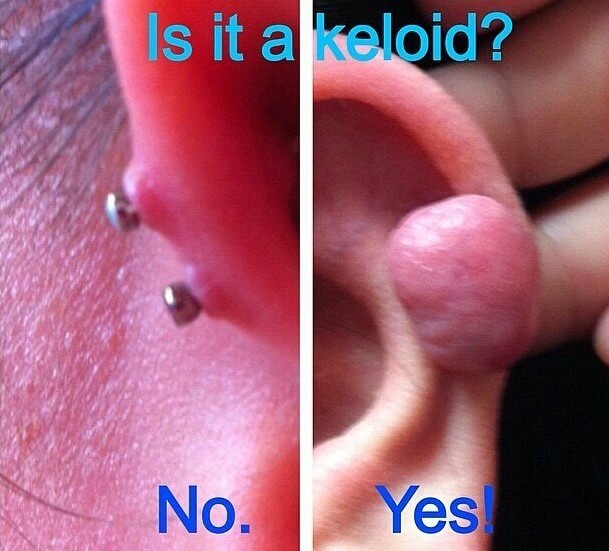
Although bump is a quite common and not dangerous piercing side effect, it can get quite nasty and problematic.
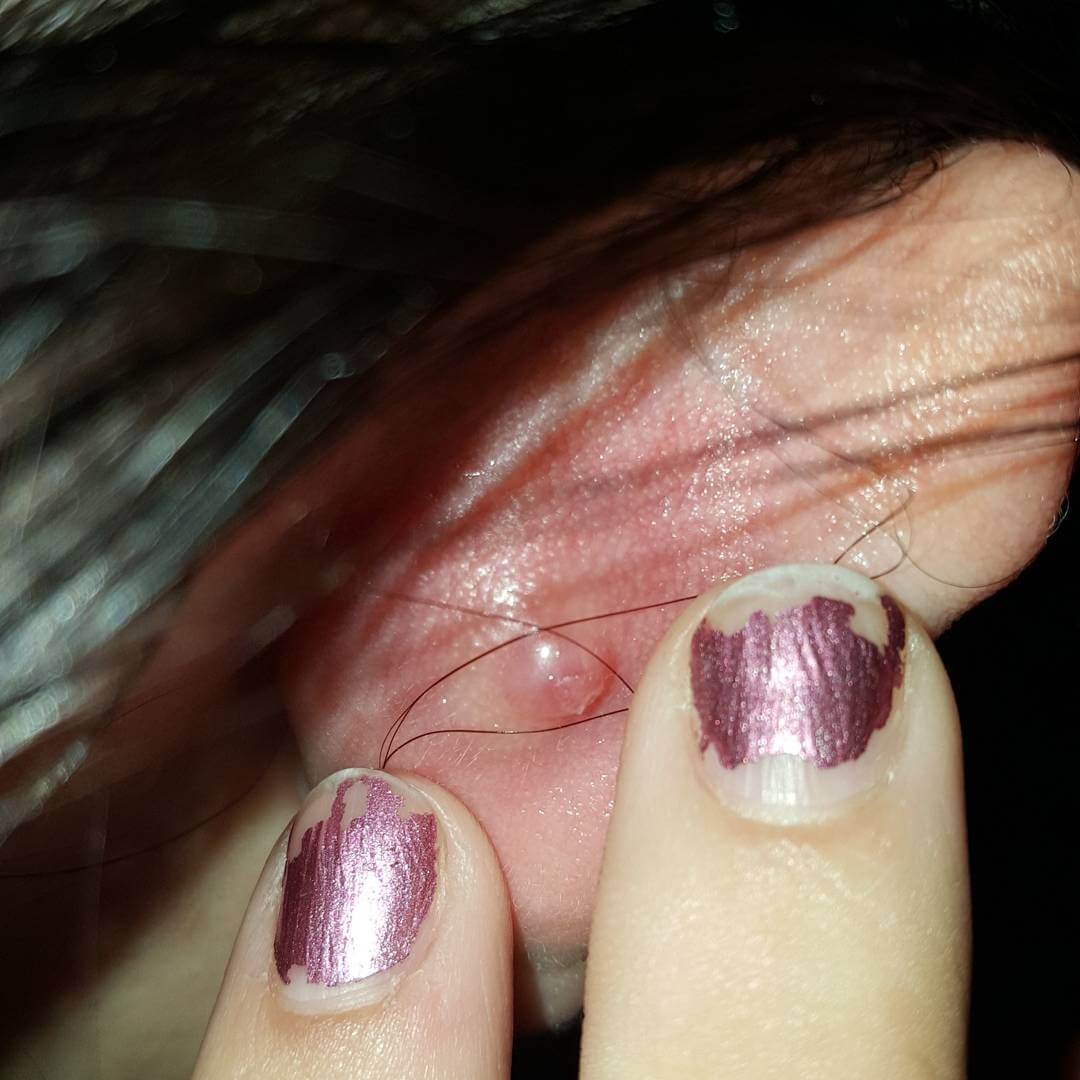
Why Does It Appear
It is quite natural to ask yourself: "what happened to my piercing?" or "what to do with this blister behind piercing?" while observing in the mirror a scary cartilage piercing bump.
However, no need to worry, it is simply a scar tissue or infection which can appear on back or front of ear, nose, lip, belly button or any other piercing type.
Below you will find some common problems, which cause a keloid or infection bump on cartilage, nose or any other piercing.
- A badly performed piercing procedure. An inexperienced master could make certain mistakes during perforation, such as using a gun instead of a needle for piercing or choosing a bad piercing angle, which would damage more tissue than actually needed.
- Close to other piercings. Some brave piercers could place several piercings close to each other, which could eventually create an ear piercing bump or even deform your ear. Therefore, research the best piercing studio or consult with your friends, before getting a new piercing. And never perform it at home, except if you are a professional piercer yourself.
- Using a harsh cleaner. Cleaners containing alcohol dissolve a scab away, and as you already know, your body produces a scar tissue instead, which creates a piercing bubble. Therefore, do not use cleaners with hydrogen peroxide, rubbing alcohol or chlorhexidine.
- Improper jewelry. Sometimes, the jewelry length or metal plays a crucial role. Your body constantly reacts to the materials inside of it. You may be allergic to certain metals, and it would show up in a keloid bump around piercing. To avoid allergiс reactions, use a jewelry made of gold, implant grade titanium or niobium, instead of stainless steel.
- Moving and rotating the jewelry. When the jewelry is constantly rotating inside the hole, the above-mentioned scar tissue is being produced. Rotating and pulling can happen even unintentionally, for example, while sleeping. When you sleep on the piercing side or when you are moving in your bed at night, the jewelry can be irritated and, consequently, you may get a trauma, which would cause a bump on piercing.
- Lack of aftercare. Any piercing should be taken care of, otherwise, the bacteria would get into the hole and the area would get infected. This usually results in a pus-filled pimple, and sometimes even bleeding. Any dirt or even decorative cosmetics can also cause an infection bump.
[powerkit_alert type="warning" dismissible="false"]
Most of the tips below are best for keloid treatment. Read another article about piercing infection treatment.
[/powerkit_alert]
Body Piercing Bump Types With Images
Scroll image gallery and discover how bump on different piercings look like.
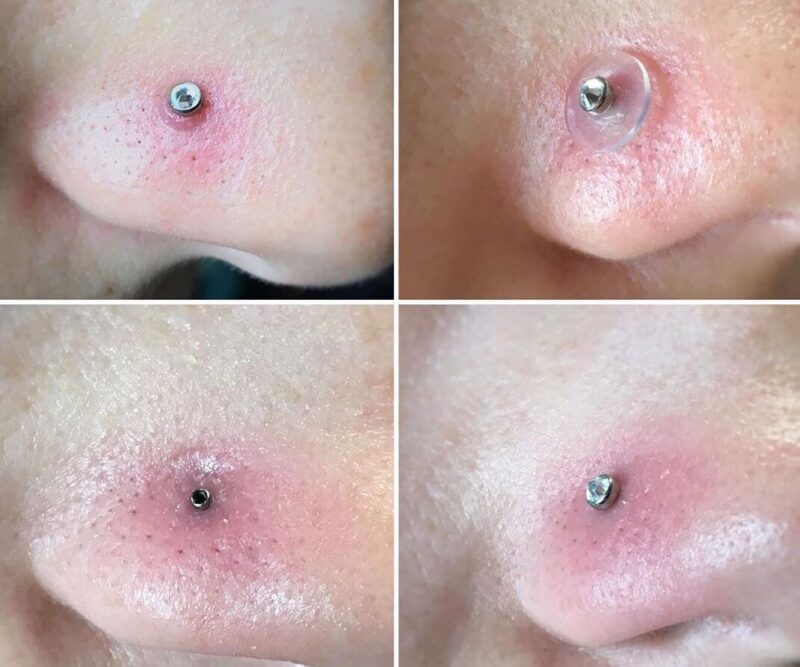
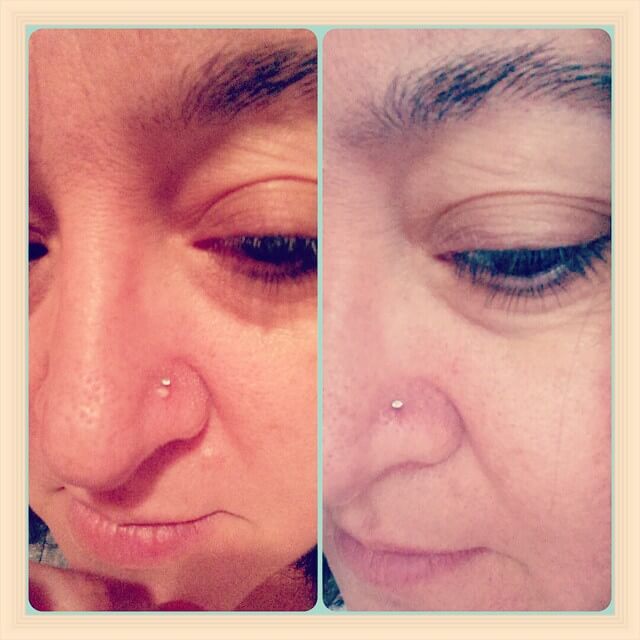
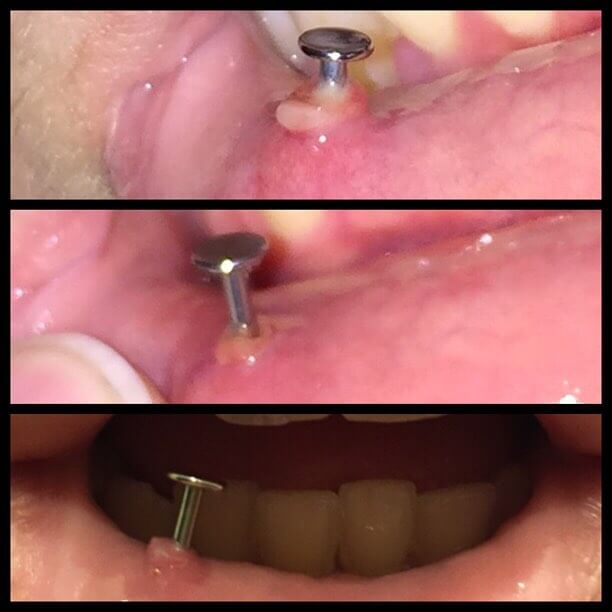
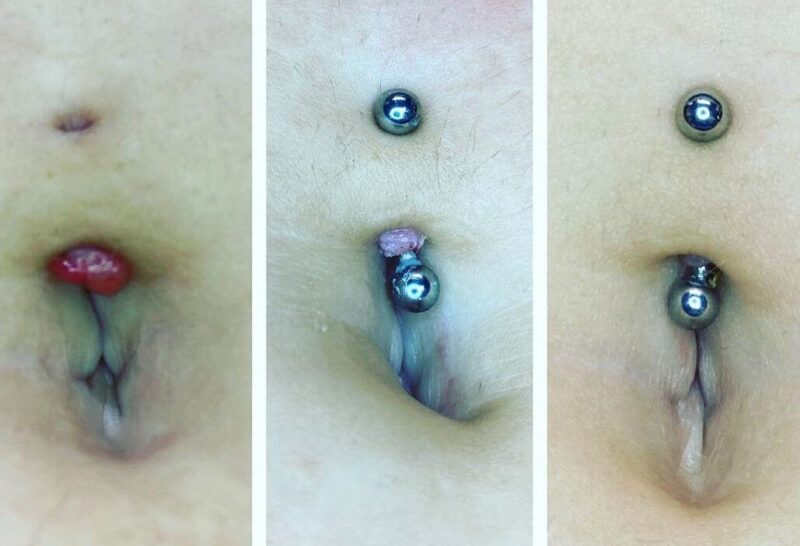
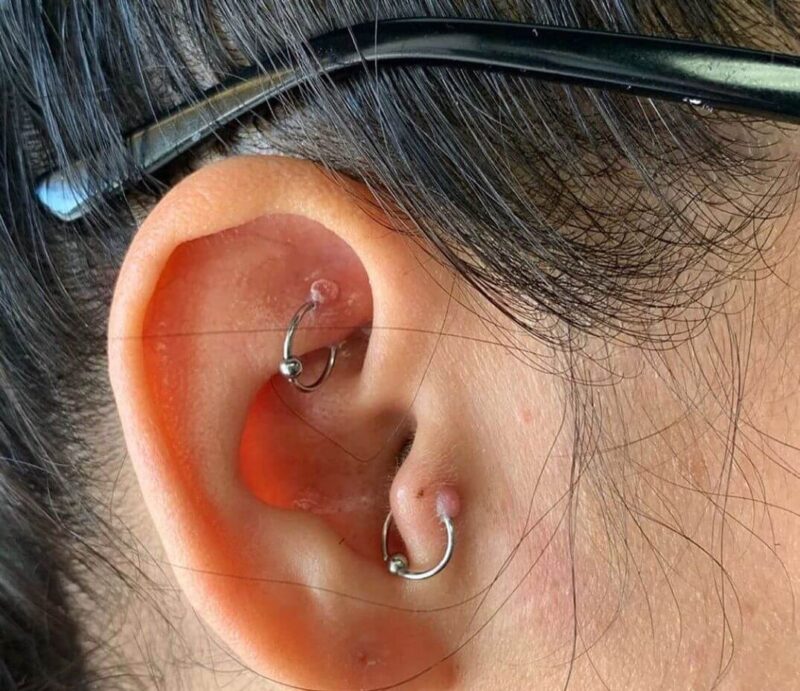
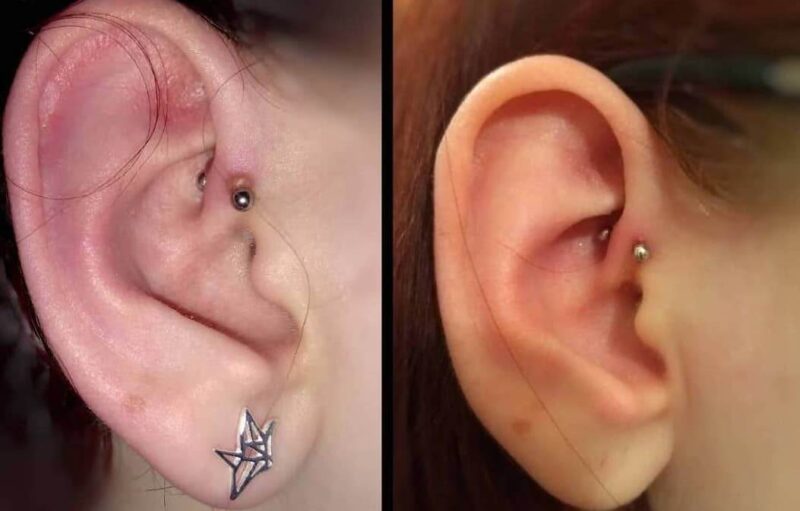
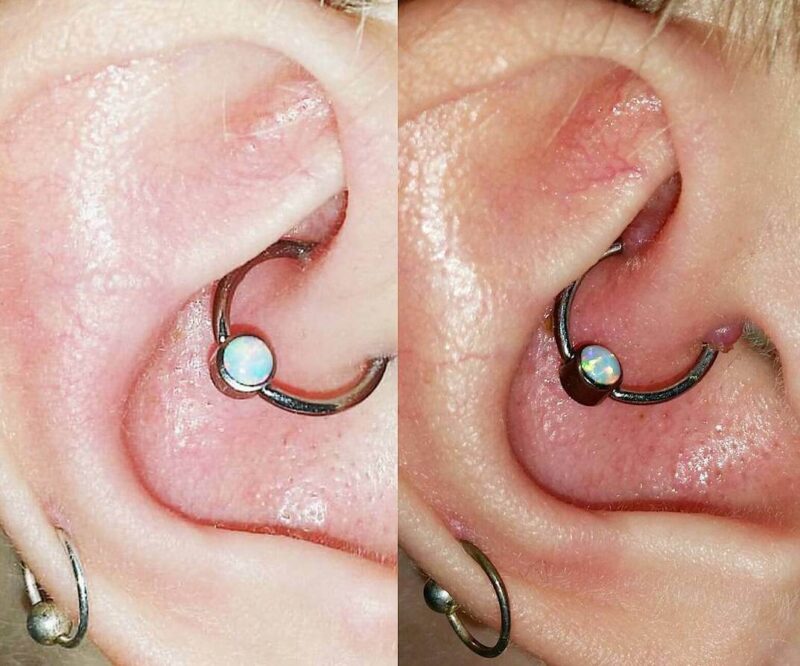
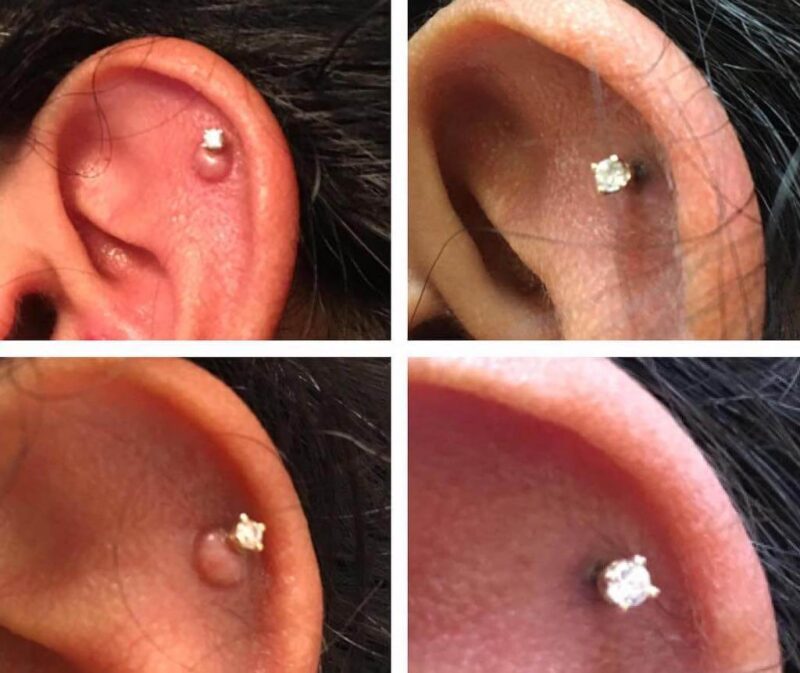
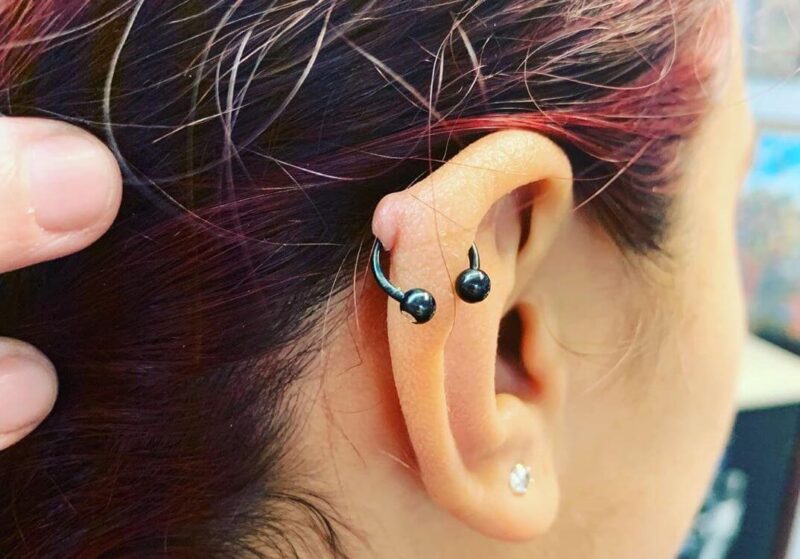
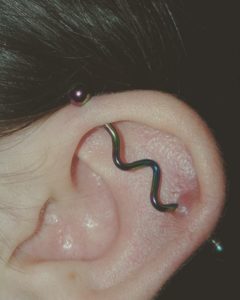
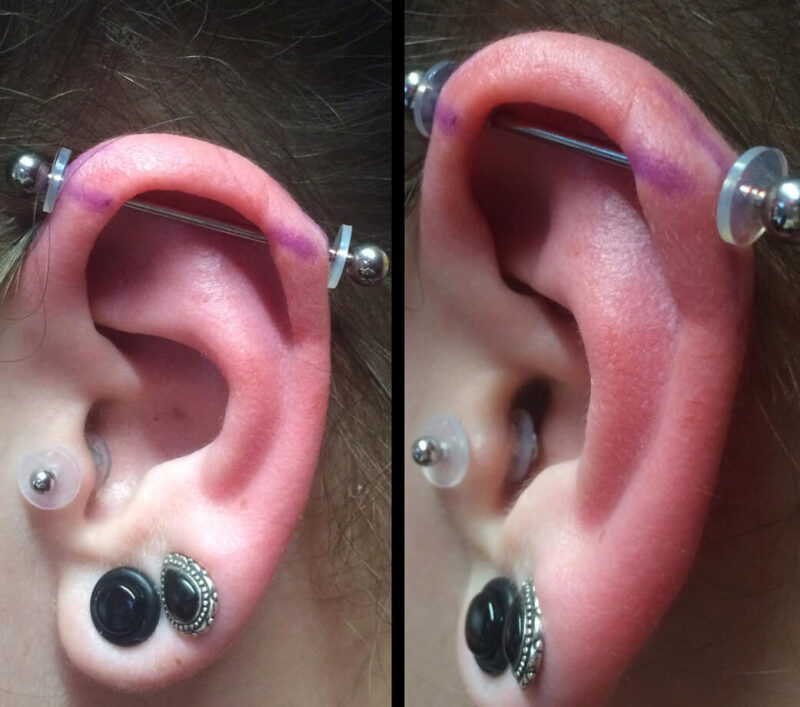
Most of the piercings healed with the help of piercing discs.
How to Get Rid of Piercing Bump
While a pimple or keloid on piercings may look frightening, remember that it is completely normal to have it.
A piercing lump is a common side effect of a cartilage or nose piercings. However, it doesn't mean that you could let it stay. You would need some patience, as getting rid of it may take some time.
The duration of treatment can take from 3 days to a 1 month, depending on the chosen cure method, and the state of your keloid bump.
So, let's explore some tricks, that would make your piercing look as good as a new one.
1. Piercing Bump Treatment by Mudscupper's – Top Choice

Best aftercare solution recently developed just for bump removal by piercing professionals. It's more effective than other solutions due to a mix of jojoba and east cape manuka oils. We gathered a few customer reviews and everyone said: "I wish I found it earlier".
Just use it as a part of your regular aftercare routine for 1-2 weeks and see your piercing pimple or keloid go away.
Alternative product in another form factor.

It's your choice if you want to care about your piercing without finger touches.
2. Tea Tree Oil – Best Way To Get Rid of Piercing Blister

This option is quite harsh, and it may be dangerous for a sensitive skin. However, some people successfully made their piercing bubble drain using a tea tree oil, mostly due to its antibacterial effect.
Anyway, if you go for this solution, you should be very cautious, and put only a small drop of it on a bump itself, not inside the wound. A tea tree oil is going to soak the moisture out of this bump and dry your skin a little.
Use the solution twice a day: before you go to bed and when you wake up in the morning, barely touching the bump with a small drop on your finger. Remember to have your hands always washed before the procedure. After applying it, in the morning you would notice a little dry skin, so you can peel that skin off and repeat the procedure.
The entire treatment can take up to one month until the keloid would completely disappear. You may also combine this tea tree oil with a non-alcohol cleaning solution.
3. Aspirin paste


Aspirin is proven to be another effective and inexpensive way to treat piercing pustules. You would need to prepare a special thick aspirin paste from it.
Simply mix 2 or 3 aspirin tablets with a drop of warm boiled water, and apply it to a bump for about half an hour. Then, remove the rest of the paste with warm water.
The treatment usually takes 3 or 4 days, after which the bump will go away.
4. Silicone Piercing Discs for Pustule Prevention


It is an effective solution to fix the jewelry and to prevent it from moving inside the hole. You can use such a disc to prevent soft and sensitive skin tissue from irritation.
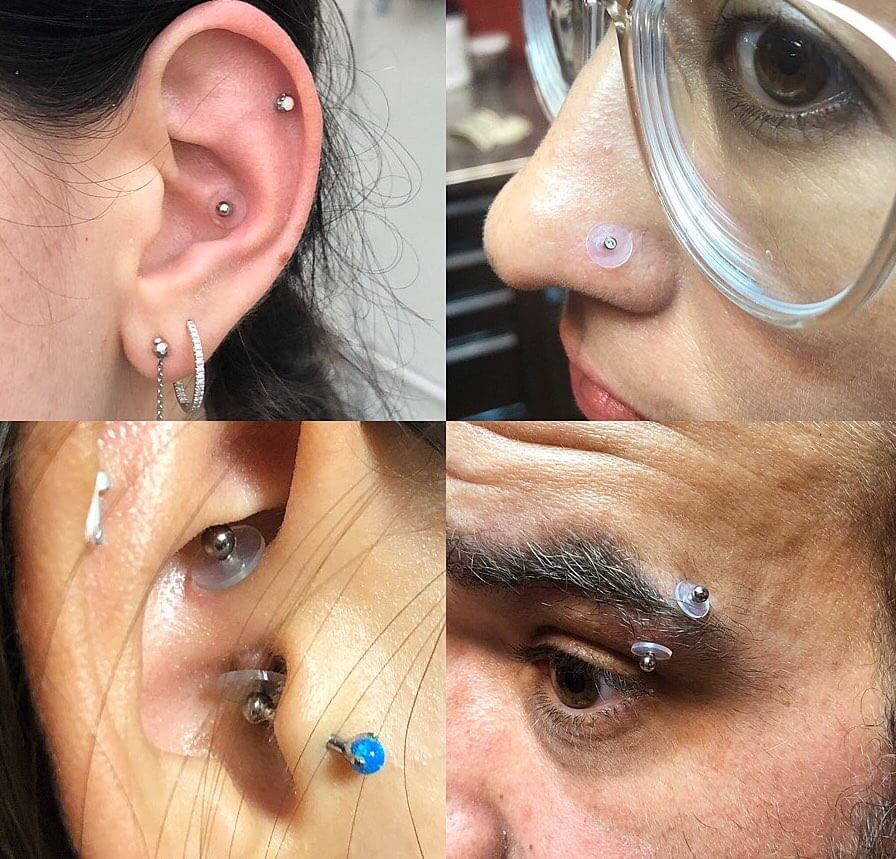
The disc is made of medical-grade silicone and should be worn on jewelry to have direct contact with a bump. Due to its sterile and gentle properties, it can heal the keloids within 2-4 weeks without any additional efforts from your side!
If you want to try the easiest bump-healing solution, you may find a Silicone Piercing Discs for Earring Backs on Amazon.

[powerkit_button size="lg" style="secondary" block="true" url="https://www.amazon.com/gp/product/B01N0ZZ4MK/ref=as_li_ss_tl?ie=UTF8&linkCode=ll1&tag=piercing-bump-20&linkId=3c5ac7ffa25c264160a7b0d27dcd4f2f" target="_blank" nofollow="false"]
Buy Now on Amazon
[/powerkit_button]
5. Colloidal Silver

This option can be used for many purposes, such as to cure acne, to boost the immune system or even for dietary purposes, putting it into food. So, as you can see, colloidal silver is quite a safe solution.
It is better to apply it after shower twice a day. You should just drop it on a bump and clean the area with a cotton swab for a couple of minutes.
The treatment can take up to one week, and on the first day, you would notice your bump substantially reducing.
However, this magic solution has one downside. The liquid is yellow and it would stay yellow on your piercing for a while.
6. Sea Salt


If the piercing is done properly, and it is straight and not angled, the best bump healing solution would be using a sea salt solution.
You may use it in a few ways:
- Put salt into a coffee cup with clean warm water and mix it until the salt is dissolved and the water is white. You can also microwave the solution for a few seconds to get it warmer, but without making it too hot. When it is ready, dunk your nose or ear into the water for a few minutes. Perform this procedure twice a day
- Alternatively, you may apply the compresses or sea salt soaks. Take the cotton pads or swabs soaked in a salt solution, and put it on the bump with little pressure. Hold it for a couple of minutes twice a day. Remember not to irritate or rotate the jewelry during the procedure. In case you have sensitive skin you can add chamomile tea to the liquid and brew it for a while. It will calm and comfort your skin
Keep using the solution until the bump is completely gone. Normally, this treatment should not last more than a week.
Some people prefer to buy a ready sea salt solution. If you do not want to make it yourself every day, you may use a special H2Ocean 4oz Piercing Aftercare Spray. The spray should be applied also 2 times a day.

Real-life Piercing Blister Treatment Process
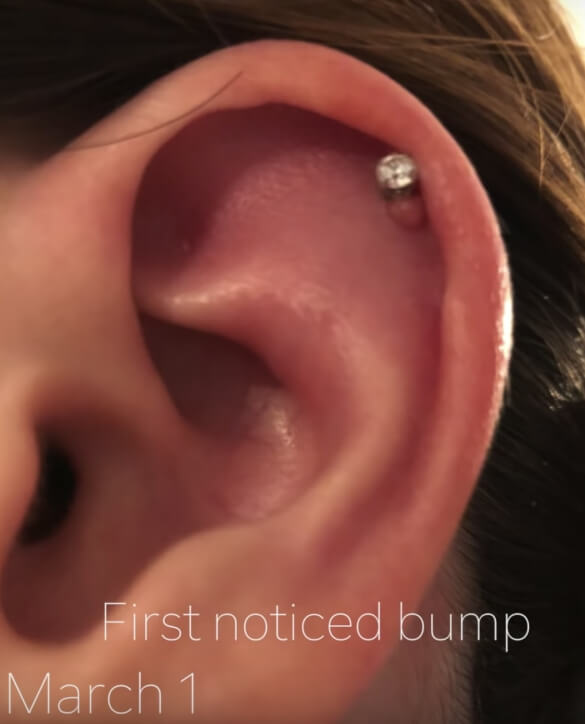
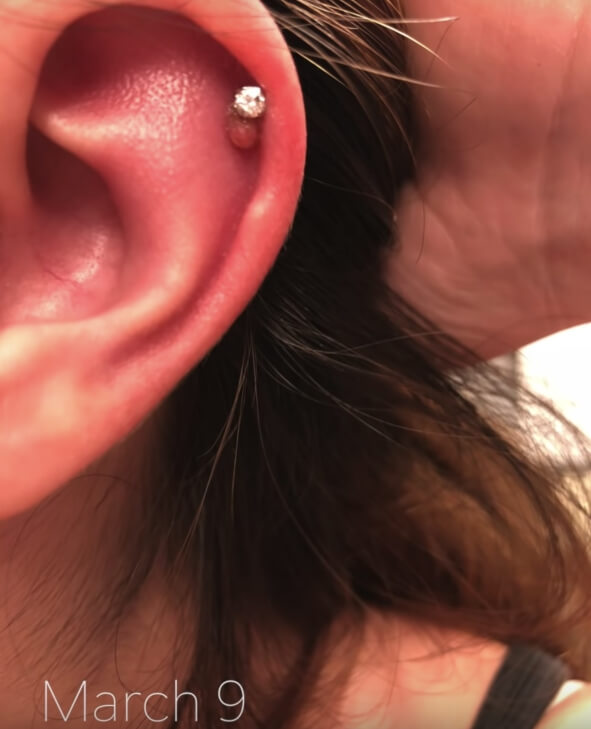
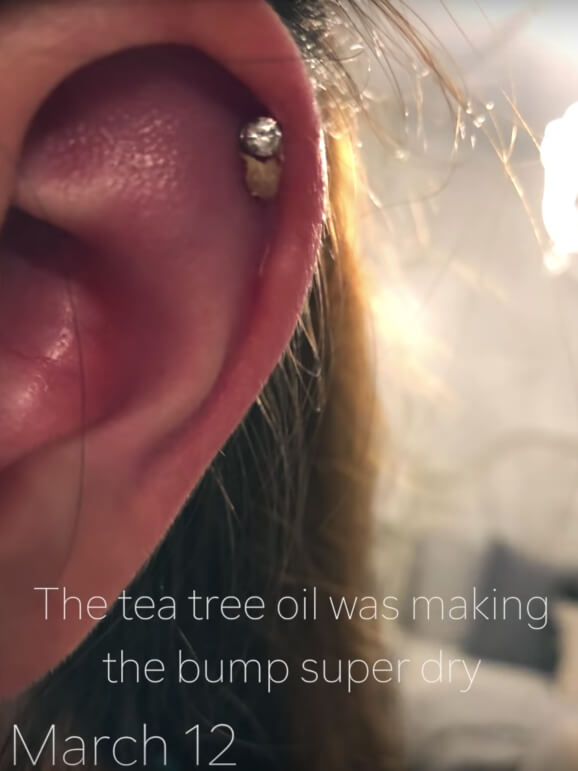
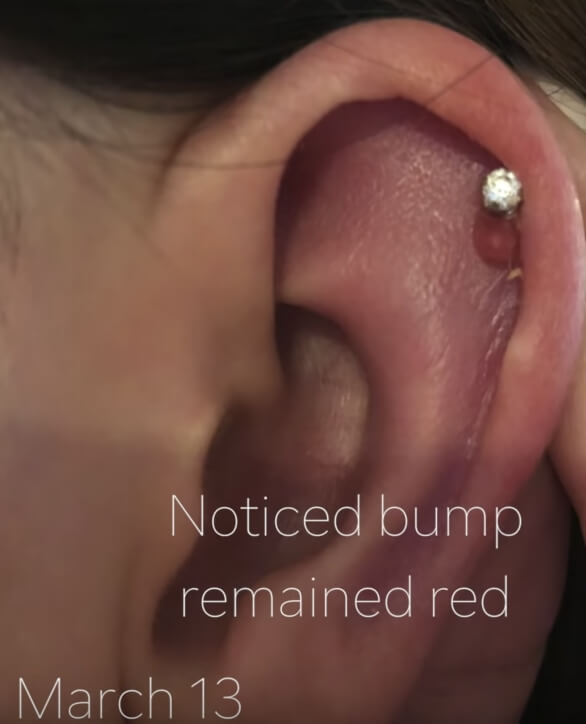
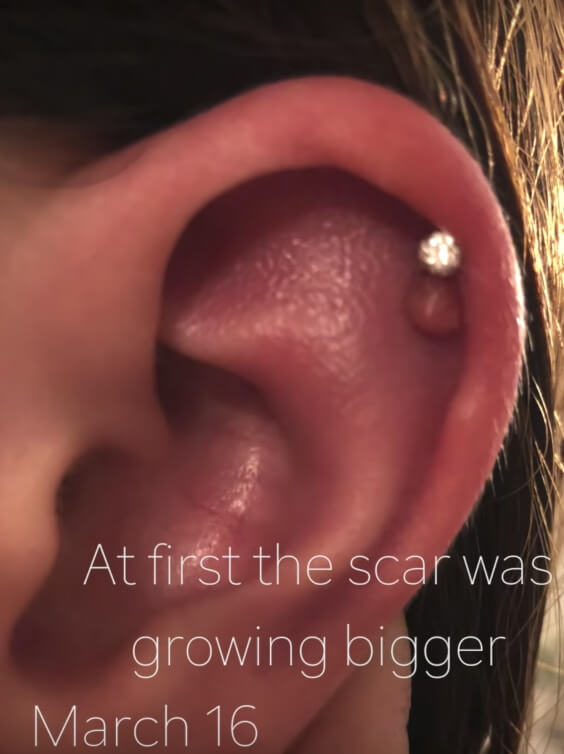
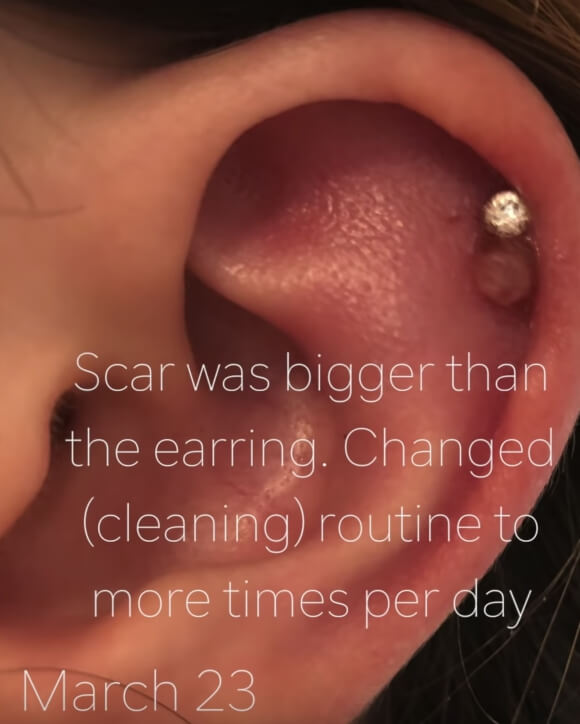
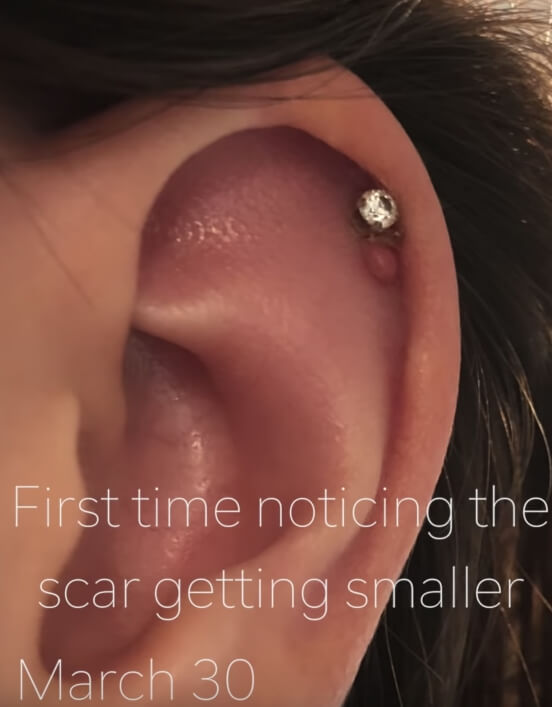
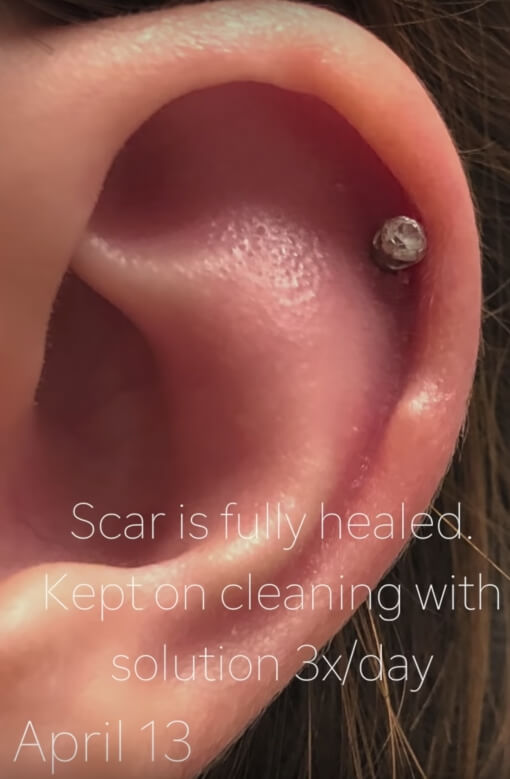
Images based on Doreen Angel experience.
Used during treatment:
When to Visit a Doctor
You should immediately visit a doctor or dermatologist to get a professional hypertrophic scarring piercing treatment when:
- Home treatment didn't help in 2-3 weeks;
- You have yellow or green pus around or next to piercing;
- You experience bleeding or the piercing area is excessively swollen and painful;
- You have a hard lump on piercing. It may indicate more serious health problems;
- You have a huge trauma problem.
In any case, if there are clear signs of an infection or other unwanted complications, it is always better to consult with a professional piercer or doctor in order to eliminate larger problems in advance.
Don't Do It
You should stay away from the dangerous self-treatment methods which do not actually help to treat a bump:
- Do not over clean the area, as you may irritate your piercing even more and only get a bigger bump;
- You should not pop the bump in any case. Otherwise, it will bleed and hurt a lot. Moreover, you will just open a door to the infections. However, if you pop it accidentally, then do clean the area, drain the rest of the bump, and use aspirin to reduce the redness;
- Do not remove the jewelry, as you would need to start the entire piercing process from the beginning. The removal would make a hole to close constantly, but the bump will remain;
- Do not touch the area with dirty hands to avoid the spread of bacteria;
- Do not sleep on the piercing side to avoid trauma.
How to Prevent
It is always better to foresee the complication than to treat it. Therefore:
- Choose the proper jewelry. Make sure that it is not larger than needed. Otherwise, it would move inside the hole, resulting in a keloid bump;
- Choose non-allergenic metals, such as gold or titanium;
- Avoid irritating the jewelry and constantly touching it. If you have a long hair, try to pull it away from your ear hole during the healing process;
- Do not get pierced with a gun, as it hardly crashes the cartilage, causing a piercing bubble to form;
- Do your homework before getting a piercing. Find a professional and experienced piercer (not just nearby tattoo studio), who would make the procedure right from the beginning.
Why Does Scar Tissue Form?
During the initial piercing healing, a scab will appear inside of the wound. This is the way how your body treats the damaged tissue. If such scab or crust is constantly removed, your body simply stops producing it, causing scar tissue to appear. Even if you think that you didn't pick up any scab, you have to keep in mind that rotating or moving your jewelry cause the same effect.
Next, your body makes a scar tissue instead of scab material, and that tissue starts bubbling out, and it has no way to go but on the top of a piercing hole.
FAQ
- Is it dangerous?
No. A bump around piercing is not dangerous, as long as you take proper care of it. Although, it feels itchy and uncomfortable.
- Is it curable?
Yes. A piercing bump can be cured easily by cleaning it with a sea salt solution, tea tree oil, colloidal silver or aspirin.
- Can I remove jewelry to get rid of it?
No. You should not remove the jewelry, as it will not make a piercing keloid go away. However, the hole will close, and you would need to perforate the tissue again to get your piercing back.
- Should I pop it?
No. You should neither squeeze it nor pop a piercing bubble. As it will only let the bacteria in, and the blister will appear again.
- What type of piercing may cause it?
Usually, it is caused by cartilage piercings, such as a helix, tragus, industrial, earlobe, rook and daith piercing. However, the bump can also be triggered by nose and belly piercings.
- How long does it take for a keloid to heal?
It depends on individual characteristics and on the chosen treatment. Generally, it takes from 3 days to 1 month to get rid of keloids on piercing.
General tips videos
Watch these videos to get the treatment details.
How-to-guides videos
See step-by-step process on how to treat your piercing bump.
How to Get Rid of Irritation Bump on Nose Piercing
Source: https://piercee.com/piercing-bump/